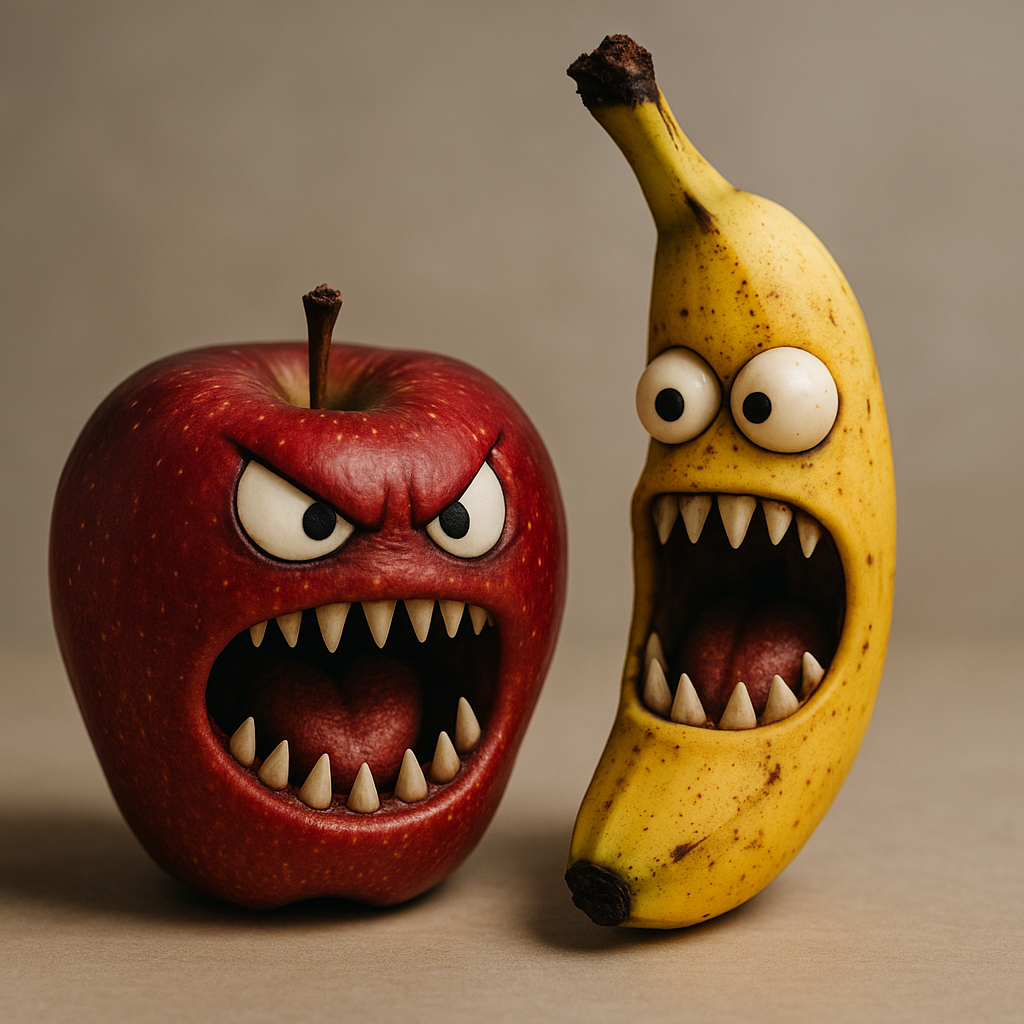The Real Deal on Fruit
Stop demonizing some of the oldest and best foods on planet earth

Stop demonizing fruit. It’s time to look at the data.
Fruit has long been targeted in low-carb and anti-sugar circles as a food group to be minimized. While it’s true that fruit contains naturally occurring sugars like fructose and glucose, reducing fruit to “just sugar” misses the point entirely. Fruit isn’t candy. It’s a nutrient-dense package of vitamins, fiber, water, and bioactive plant compounds known as phytochemicals—many of which have proven benefits for reducing inflammation, supporting gut health, and lowering the risk of chronic diseases, including cancer and heart disease.
"Early humans mainly ate uncultivated fruits, roots or tubers, vegetables, and sometimes honey, fish, and meats. They consumed varying amounts of fats and protein and, most likely, a diet high in plant fiber." -https://www.ncbi.nlm.nih.gov/books/NBK482457
Here’s why the sugar in fruit is not the enemy:
1. Fiber slows sugar absorption. The naturally occurring fiber in fruit buffers the glucose response and delays digestion, resulting in lower blood sugar and insulin spikes compared to processed sugar. This also promotes satiety, making fruit less likely to cause overeating.
2. Phytochemicals fight inflammation and oxidative stress. Compounds like anthocyanins (in berries), quercetin (in apples), and hesperidin (in citrus) help combat cell damage, support vascular health, and even influence metabolic pathways.
3. Whole fruits hydrate you. Many fruits are 80–90% water, helping you stay hydrated and support digestion, kidney function, and skin health.
4. The sugar load is low when measured per serving. Even fruits considered “high in sugar,” like grapes and bananas, offer modest sugar quantities per 100 g—and in return, deliver essential nutrients.
Top 10 Fruits by Nutritional Value per 100 g
Raspberries: 52 kcal – 4.4 g sugar – 6.5 g fiber
Blackberries: 43 kcal – 4.9 g sugar – 5.3 g fiber
Blueberries: 57 kcal – 9.7 g sugar – 2.4 g fiber
Apples (with skin): 52 kcal – 10.4 g sugar – 2.4 g fiber
Pears (with skin): 57 kcal – 9.8 g sugar – 3.1 g fiber
Strawberries: 32 kcal – 4.9 g sugar – 2.0 g fiber
Oranges: 47 kcal – 9.4 g sugar – 2.4 g fiber
Bananas: 89 kcal – 12.2 g sugar – 2.6 g fiber
Cherries: 63 kcal – 12.8 g sugar – 2.1 g fiber
Grapes (red or green): 69 kcal – 15.5 g sugar – 0.9 g fiber
The bottom line:
Fruit is not the villain. Eating a whole peach or a handful of berries isn’t remotely comparable to drinking soda or eating candy. The fiber and phytochemicals found in whole fruits shift the metabolic response dramatically in your favor. For most people, the concern shouldn’t be “fruit has sugar”—it should be “am I eating enough of the good stuff that comes with it?"
Fruit has long been targeted in low-carb and anti-sugar circles as a food group to be minimized. While it’s true that fruit contains naturally occurring sugars like fructose and glucose, reducing fruit to “just sugar” misses the point entirely. Fruit isn’t candy. It’s a nutrient-dense package of vitamins, fiber, water, and bioactive plant compounds known as phytochemicals—many of which have proven benefits for reducing inflammation, supporting gut health, and lowering the risk of chronic diseases, including cancer and heart disease.
"Early humans mainly ate uncultivated fruits, roots or tubers, vegetables, and sometimes honey, fish, and meats. They consumed varying amounts of fats and protein and, most likely, a diet high in plant fiber." -https://www.ncbi.nlm.nih.gov/books/NBK482457
Here’s why the sugar in fruit is not the enemy:
1. Fiber slows sugar absorption. The naturally occurring fiber in fruit buffers the glucose response and delays digestion, resulting in lower blood sugar and insulin spikes compared to processed sugar. This also promotes satiety, making fruit less likely to cause overeating.
2. Phytochemicals fight inflammation and oxidative stress. Compounds like anthocyanins (in berries), quercetin (in apples), and hesperidin (in citrus) help combat cell damage, support vascular health, and even influence metabolic pathways.
3. Whole fruits hydrate you. Many fruits are 80–90% water, helping you stay hydrated and support digestion, kidney function, and skin health.
4. The sugar load is low when measured per serving. Even fruits considered “high in sugar,” like grapes and bananas, offer modest sugar quantities per 100 g—and in return, deliver essential nutrients.
Top 10 Fruits by Nutritional Value per 100 g
Raspberries: 52 kcal – 4.4 g sugar – 6.5 g fiber
Blackberries: 43 kcal – 4.9 g sugar – 5.3 g fiber
Blueberries: 57 kcal – 9.7 g sugar – 2.4 g fiber
Apples (with skin): 52 kcal – 10.4 g sugar – 2.4 g fiber
Pears (with skin): 57 kcal – 9.8 g sugar – 3.1 g fiber
Strawberries: 32 kcal – 4.9 g sugar – 2.0 g fiber
Oranges: 47 kcal – 9.4 g sugar – 2.4 g fiber
Bananas: 89 kcal – 12.2 g sugar – 2.6 g fiber
Cherries: 63 kcal – 12.8 g sugar – 2.1 g fiber
Grapes (red or green): 69 kcal – 15.5 g sugar – 0.9 g fiber
The bottom line:
Fruit is not the villain. Eating a whole peach or a handful of berries isn’t remotely comparable to drinking soda or eating candy. The fiber and phytochemicals found in whole fruits shift the metabolic response dramatically in your favor. For most people, the concern shouldn’t be “fruit has sugar”—it should be “am I eating enough of the good stuff that comes with it?"
Updated: August 13, 2025 10:19
Category: Fitness
Keywords: nutrition fruit phytochemicals sugar
Comments
You must log in to post a comment.